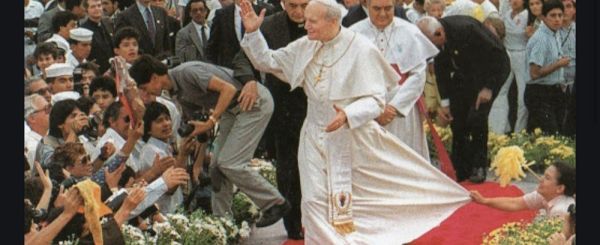1. "Behold, we are going up to Jerusalem" (Mk 10:33). With these words, the Lord invites the disciples to journey with him on the path that leads from Galilee to the place where he will complete his redemptive mission. This journey to Jerusalem, which the Evangelists present as the crowning moment of the earthly journey of Jesus, is the model for the Christian who is committed to following the Master on the way of the Cross. Christ also invites the men and women of today to "go up to Jerusalem". He does so with special force in Lent, which is a favourable time to convert and restore full communion with him by sharing intimately in the mystery of his Death and Resurrection.
For believers, therefore, Lent is the appropriate time for a profound re-examination of life. In today’s world, there is much generous witness to the Gospel, but there are also baptized people who, when faced with the demanding call to "go up to Jerusalem", remain deaf and resistant, even at times openly rebellious. There are situations where people’s experience of prayer is rather superficial, so that the word of God does not enter deeply into their lives. Even the Sacrament of Penance is thought by many to be unimportant and the Sunday celebration of the Eucharist is seen as a mere duty to be performed.
How should we respond to the invitation to conversion that Jesus addresses to us in this time of Lent? How can there be a serious change in our life? First of all, we must open our hearts to the penetrating call that comes to us from the Liturgy. The time of preparation for Easter is a providential gift from the Lord and a precious opportunity to draw closer to him, turning inward to listen to his promptings deep within.
2. There are Christians who think they can dispense with this unceasing spiritual effort, because they do not see the urgency of standing before the truth of the Gospel. Lest their way of life be upset, they seek to take words like "Love your enemies, do good to those who hate you" (Lk 6:27) and render them empty and innocuous. For these people, it is extremely difficult to accept such words and to translate them into consistent patterns of behaviour. They are in fact words which, if taken seriously, demand a radical conversion. On the other hand, when we are offended or hurt, we are tempted to succumb to the psychological impulses of self-pity and revenge, ignoring Jesus’ call to love our enemy. Yet the daily experiences of human life show very clearly how much forgiveness and reconciliation are indispensable if there is to be genuine renewal, both personal and social. This applies not only to interpersonal relationships, but also to relationships between communities and nations.
[Pope John Paul II, Message for Lent 2001]












